On this page you will find information on:
Welcome to the third edition of our Friends of CCQ newsletter. It’s already September and we have some great achievements to celebrate!
May saw thousands of Queenslanders pop the kettle to celebrate 25 years of Australia’s Biggest Morning Tea. In total we raised over two million dollars, thanks to our volunteers and supporters.
One year on since Transport to Treatment launched in Cairns the service has been made permanent, thanks to the generosity of the community. Suncorp through their Brighter Futures Employees initiative and a private donor joined forces to ensure the service continues, assisting with funding for a new vehicle and maintaining on road costs.
The office was a buzz for Daffodil Day last month and we well and truly turned Queensland yellow. I hope you took an opportunity to enjoy these joyous blooms.
As a former volunteer you would know some of the challenges faced by cancer patients. In this edition we also chat to a volunteer who makes getting to and from treatment less of a burden.
With thanks,
Chris McMillan
Chief Executive Officer
Making a difference one kilometre at a time
Graham Henry has been volunteering with our Transport to Treatment service as a driver since its inception last year. We enjoyed reading his kind words and thought you would too!
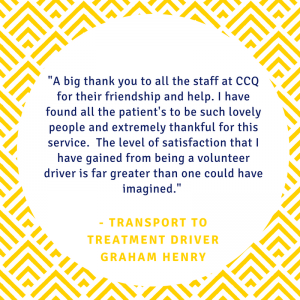
A massive thank you to all our supporters and volunteers who have helped make Transport to Treatment possible in Brisbane and Cairns.
We know that it’s making a real difference in the community, as the below letter of thanks shows! With continued community support, we plan to roll out the program across the state.
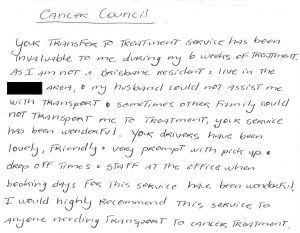
Making a gift that will live on
Leaving a gift in your Will is a very personal decision. Cancer Council Queensland is honoured by its supporters who generously make such a kind and thoughtful gift.
All gifts in Wills made to Cancer Council Queensland are vital to make the long-term commitment necessary to fund research, education and support services for cancer patients and their families in Queensland, and to ensure that this will continue well into the future.
There are no rules when it comes to the type of supporters who choose to make a gift to Cancer Council Queensland.
Penny is a CCQ volunteer and has left a gift in her Will (a bequest) as she believes the services we provide to Queenslanders with cancer are important and valuable.
Penny is particularly interested in the support we offer to people living with cancer and their families. Penny has seen firsthand what CCQ is doing her in region. She proudly chose to leave a gift to CCQ in her Will to ensure that we can continue to provide services in her community.
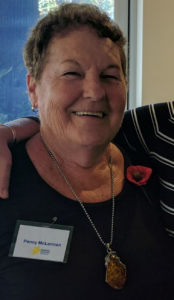
If you would like to know more about how to leave a Gift in your Will and to receive your free copy of the Cancer Council Queensland Bequest booklet, including suggested wording for your Will, please contact Phil Hancock, Manager, Gifts in Wills on 3634 5237 or PhilipHancock@cancerqld.org.au
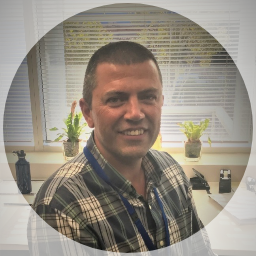
Robotic surgery giving hope to prostate cancer patients
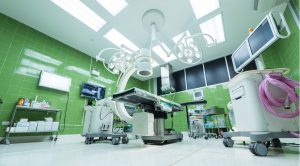
In a world first trial, Australian researchers have found that robotic-assisted prostatectomy is providing equal outcomes for urinary and erectile function to open prostatectomy.
Published in The Lancet Oncology, the study, led by researchers at the Royal Brisbane and Women’s Hospital and Menzies Health Institute Queensland, and funded by Cancer Council Queensland, found that the advanced robotic technology also offered a safer and minimally invasive option for men diagnosed with prostate cancer.
Robot-assisted surgery for prostate cancer has been rapidly adopted by health professionals and is now the most widely utilised surgical approach for prostatectomy.
Royal Brisbane and Women’s Hospital Urologist Dr Nigel Dunglison said the study examined surgery outcomes for around 300 Australian men over a two-year period.
“To date, very little research has been done comparing long-term outcomes of robotic-assisted prostatectomy and open prostatectomy,” Dr Dunglison said.
“Our study showed similar results for urinary and erectile function from both the robot-assisted and open surgical patient groups after 12 weeks, and these remained equal at six, 12 and 24 months.
“Many patients experience long-term complications post-surgery, including reduced urinary and bowel control, erectile dysfunction and elevated psychological distress. As technology, surgery, oncology, and radiation advances, we hope this will help improve long-term side effects experienced by prostate cancer survivors to reduce the burden of the disease on those diagnosed. This study has given us vital insight into the two surgical options and will help shape further research going forward.”
“We recommend that funding organisations, health care institutions and practitioners embrace minimally invasive technologies, and high quality training is provided for surgeons to ensure patients receive the best form of care.”
Dr Dunglison said the study indicated men who underwent a robotic prostatectomy had a lower biochemical PSA recurrence after two years, however, the reason for this was not specifically studied and more research is needed to understand why.
Griffith University’s Menzies Health Institute Queensland Director Professor Suzanne Chambers said one in five participants reported elevated psychological distress 24 months after surgery.
“Unexpectedly, the study also showed that psychological distress remained high for one in five men throughout the study period and was not influenced by surgery type,” Prof. Chambers said.
“These findings highlight the need for improved distress screening and psychological care long after treatment ends. Issues such as sexual dysfunction, urinary and bowel changes, and even fear of recurrence can all lead to elevated psychological distress. For optimal prostate care, there needs to be evidence-based psychological intervention that is responsive to masculinity and related concerns.”
Cancer Council Queensland CEO Ms Chris McMillan said prostate cancer was the most common cancer diagnosed in men in Australia.
“Around 18,300 men are diagnosed with prostate cancer every year in Australia, and about 3200 die from the disease,” Ms McMillan said.
“Prostate cancer is most common in men over the age of 50 and in those who have a family history of prostate, breast or ovarian cancer. If men have questions about their individual risk of prostate cancer, we recommend they speak with their GP to discuss risk factors and pros and cons of prostate cancer testing.”
Prostate Cancer Foundation Australia National Chairman, Jim Hughes AM said that the organization welcomed the study findings and embraced the dissemination of these findings about some of the many different treatment approaches available to men diagnosed with localised, prostate cancer in order to support informed decision making.
“There are various other treatments available and men need to be well across their medical choices so that optimal decisions relevant to their personal health circumstances can be made by them in conjunction with their medical advisors,” Mr Hughes said.
The study was funded by Cancer Council Queensland and undertaken by the Department of Urology at Royal Brisbane and Women’s Hospital, Menzies Health Institute Queensland, and University of Queensland Centre for Clinical Research with support from the Urological Society of Australia and New Zealand.
Meet Bruce Turner, Data Entry Volunteer
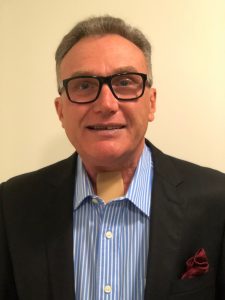
What is your role with CCQ? What does it involve?
Data Entry Volunteer working on the CRM Database Data Quality Project
How long have you been volunteering with CCQ?
1 year
Why did you decide to get involved with CCQ? What was your motivation for volunteering?
I am a cancer survivor. I was diagnosed with throat cancer (Chrondosarcoma of the cricoid cartilage) and had a full laryngectomy operation in 2004.
I was working full time in the IT Industry and it became too difficult due to communication and ongoing health issues and treatment. Volunteering has given me a purpose and the social interaction that I am missing post retirement. Working with a charity that supports people with cancer and funding research was a good fit for me.
What do you love most about your volunteer role?
I really enjoy getting to know the people that I work with.
What has surprised you in your role?
The selflessness of both the employees and volunteers at CCQ.
What has been the most inspiring or memorable moment you’ve had since starting with CCQ?
Meeting Ken, a volunteer aged 86 during National Volunteer Week. So inspiring … and working on the Daffodil Day stand at Central Station last year. That was a lot of fun and people were genuinely interested in my journey.
What is your hope for the future? What do you hope your volunteering will achieve for cancer and Cancer Council Queensland?
I hope to continue to work for CCQ in the coming years and add value to whatever I do. I would also like to be able to help and support other/new laryngectomees by sharing information and assisting them with everyday issues.
What would you say to someone who was thinking about volunteering with Cancer Council Queensland?
Cancer Council QLD is a great place to volunteer and the people are fantastic to work with.
What do you feel you’ve gained through volunteering for Cancer Council Queensland?
A lot of satisfaction and purpose in my life.
